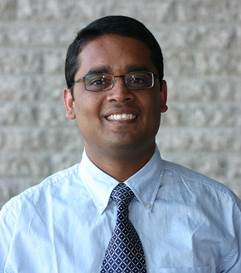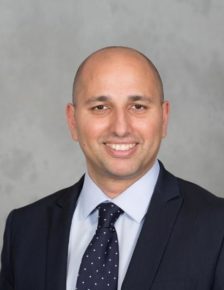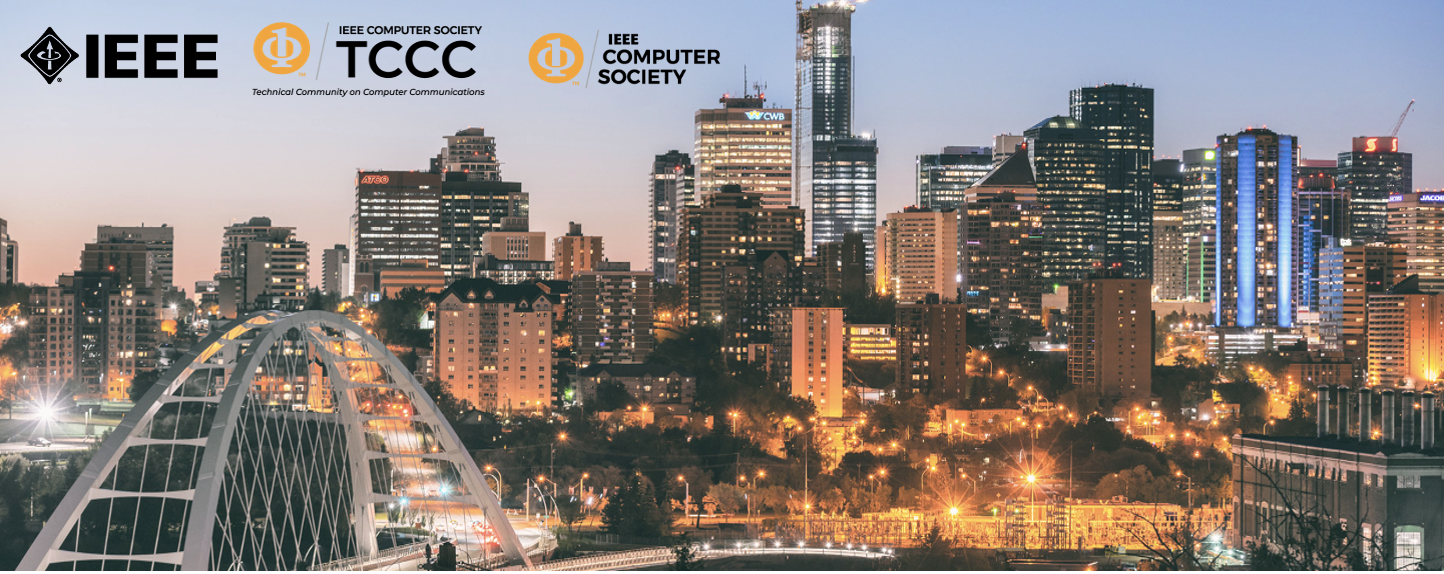LCN Keynote Presentations
Monday, 26 September 2022, 0900-1000 MDT (UTC -06:00)
Stochastic Multi-armed Bandit With Knapsack and Its Application in Wireless Edge Computing
Ekram Hossain, Ph.D., P.Eng., FIEEE, FCAE, FEIC
Member, College of the Royal Society of CanadaProfessor and Associate Head (Graduate Studies)
Department of Electrical and Computer Engineering
University of Manitoba, Canada
ABSTRACT
Multi-armed bandits (MAB) is a popular sequential optimization technique for distributed decision making under uncertainty given no prior knowledge of the environment. It uses the history of previous decisions and observations as well as side information (if available) to arrive at the current decision. Different from traditional bandits, bandits with knapsacks (BwK) also consider global constraints in the sequential optimization process. In this talk, I will discuss the BwK model in general and its application to the server selection problem for computation offloading in a wireless network. Extension of the model to linear contextual bandits will be also discussed to obtain an improved distributed server selection algorithm.
ABOUT THE SPEAKER
 |
Ekram Hossain (IEEE Fellow) is a Professor in the Department of Electrical and Computer Engineering at University of Manitoba, Winnipeg, Canada. He is a Member (Class of 2016) of the College of the Royal Society of Canada, and also a Fellow of the Canadian Academy of Engineering and a Fellow of the Engineering Institute of Canada. He received his Ph.D. in Electrical Engineering from University of Victoria, Canada, in 2001. Dr. Hossain's current research interests include design, analysis, and optimization of wireless communication networks (with emphasis on beyond 5G/6G networks), applied machine learning, game theory, and network economics. He was elevated to an IEEE Fellow “for contributions to spectrum management and resource allocation in cognitive and cellular radio networks". He was listed as a Clarivate Analytics Highly Cited Researcher in Computer Science in 2017, 2018, 2019, 2020, and 2021. Dr. Hossain has won several research awards including the “2017 IEEE Communications Society (ComSoc) Best Survey Paper Award”, the 2011 IEEE Communications Society Fred Ellersick Prize Paper Award, and the University of Manitoba Merit Award in 2010, 2013, 2014, and 2015 (for Research and Scholarly Activities). He received the 2017 IEEE ComSoc TCGCC (Technical Committee on Green Communications & Computing) Distinguished Technical Achievement Recognition Award “for outstanding technical leadership and achievement in green wireless communications and networking”. Currently he serves as an Editor of the IEEE Transactions on Mobile Computing and the Director of Online Content (2022-2023) for the IEEE ComSoc. Previously, he served as the Editor-in-Chief of the IEEE Press (2018-2021), the IEEE Communications Surveys and Tutorials (2012-2016), and the Director of Magazines for the IEEE ComSoc (2020-2021). Dr. Hossain was an elected Member of the Board of Governors of the IEEE ComSoc for the term 2018-2020. He is a registered Professional Engineer in the province of Manitoba, Canada. |
Tuesday, 27 September 2021, 0900-1000 MDT (UTC -06:00)
10 Scientific Challenges for 6G
Prof. Mérouane Debbah
Technology Innovation Institute, Abu Dhabi (UAE),Centralesupelec (France)
IEEE Signal Processing Society Distinguished Industry Speaker
ABSTRACT
The research in the sixth generation of communication networks needs to tackle new challenges in order to meet the requirements of emerging applications in terms of high data rate, low latency, high reliability, and massive connectivity. To this end, the entire communication chain needs to be optimized, including the channel and the surrounding environment, as it is no longer sufficient to control the transmitter and/or the receiver only. Investigating large intelligent surfaces, ultra massive multiple-input-multiple-output, and smart constructive environments will contribute to this direction. In addition, to allow the exchange of high dimensional sensing data between connected intelligent devices, semantic and goal-oriented communications need to be considered for a more efficient and context-aware information encoding. In particular, for multi-agent systems, where agents are collaborating together to achieve a complex task, emergent communications, instead of hard-coded communications, can be learned for more efficient task execution and communication resources use. Moreover, the interaction between information theory and electromagnetism should be explored to better understand the physical limitations of different technologies, e.g, holographic communications. Another new communication paradigm is to consider the end-to-end approach instead of block-by-block optimization, which requires exploiting machine learning theory, non-linear signal processing theory, and non-coherent communications theory. Within this context, we identify in this talk ten scientific challenges for rebuilding the theoretical foundations of communications, and we overview each of the challenges while providing research opportunities and open questions for the research community.
ABOUT THE SPEAKER
 |
Mérouane Debbah is Chief Researcher at the Technology Innovation Institute in Abu Dhabi. He is a Professor at Centralesupelec and an Adjunct Professor with the Department of Machine Learning at the Mohamed Bin Zayed University of Artificial Intelligence. He received the M.Sc. and Ph.D. degrees from the Ecole Normale Supérieure Paris-Saclay, France. He was with Motorola Labs, Saclay, France, from 1999 to 2002, and also with the Vienna Research Center for Telecommunications, Vienna, Austria, until 2003. From 2003 to 2007, he was an Assistant Professor with the Mobile Communications Department, Institut Eurecom, Sophia Antipolis, France. In 2007, he was appointed Full Professor at CentraleSupelec, Gif-sur-Yvette, France. From 2007 to 2014, he was the Director of the Alcatel-Lucent Chair on Flexible Radio. From 2014 to 2021, he was Vice-President of the Huawei France Research Center. He was jointly the director of the Mathematical and Algorithmic Sciences Lab as well as the director of the Lagrange Mathematical and Computing Research Center. Since 2021, he is leading the AI & Digital Science Research centers at the Technology Innovation Institute. He has managed 8 EU projects and more than 24 national and international projects. His research interests lie in fundamental mathematics, algorithms, statistics, information, and communication sciences research. He is an IEEE Fellow, a WWRF Fellow, a Eurasip Fellow, an AAIA Fellow, an Institut Louis Bachelier Fellow and a Membre émérite SEE. He was a recipient of the ERC Grant MORE (Advanced Mathematical Tools for Complex Network Engineering) from 2012 to 2017. He was a recipient of the Mario Boella Award in 2005, the IEEE Glavieux Prize Award in 2011, the Qualcomm Innovation Prize Award in 2012, the 2019 IEEE Radio Communications Committee Technical Recognition Award and the 2020 SEE Blondel Medal. He received more than 20 best paper awards, among which the 2007 IEEE GLOBECOM Best Paper Award, the Wi-Opt 2009 Best Paper Award, the 2010 Newcom++ Best Paper Award, the WUN CogCom Best Paper 2012 and 2013 Award, the 2014 WCNC Best Paper Award, the 2015 ICC Best Paper Award, the 2015 IEEE Communications Society Leonard G. Abraham Prize, the 2015 IEEE Communications Society Fred W. Ellersick Prize, the 2016 IEEE Communications Society Best Tutorial Paper Award, the 2016 European Wireless Best Paper Award, the 2017 Eurasip Best Paper Award, the 2018 IEEE Marconi Prize Paper Award, the 2019 IEEE Communications Society Young Author Best Paper Award, the 2021 Eurasip Best Paper Award, the 2021 IEEE Marconi Prize Paper Award, the 2022 IEEE Communications Society Outstanding Paper Award, the 2022 ICC Best paper Award as well as the Valuetools 2007, Valuetools 2008, CrownCom 2009, Valuetools 2012, SAM 2014, and 2017 IEEE Sweden VT-COM-IT Joint Chapter best student paper awards. He is an Associate Editor-in-Chief of the journal Random Matrix: Theory and Applications. He was an Associate Area Editor and Senior Area Editor of the IEEE TRANSACTIONS ON SIGNAL PROCESSING from 2011 to 2013 and from 2013 to 2014, respectively. From 2021 to 2022, he serves as an IEEE Signal Processing Society Distinguished Industry Speaker. |
